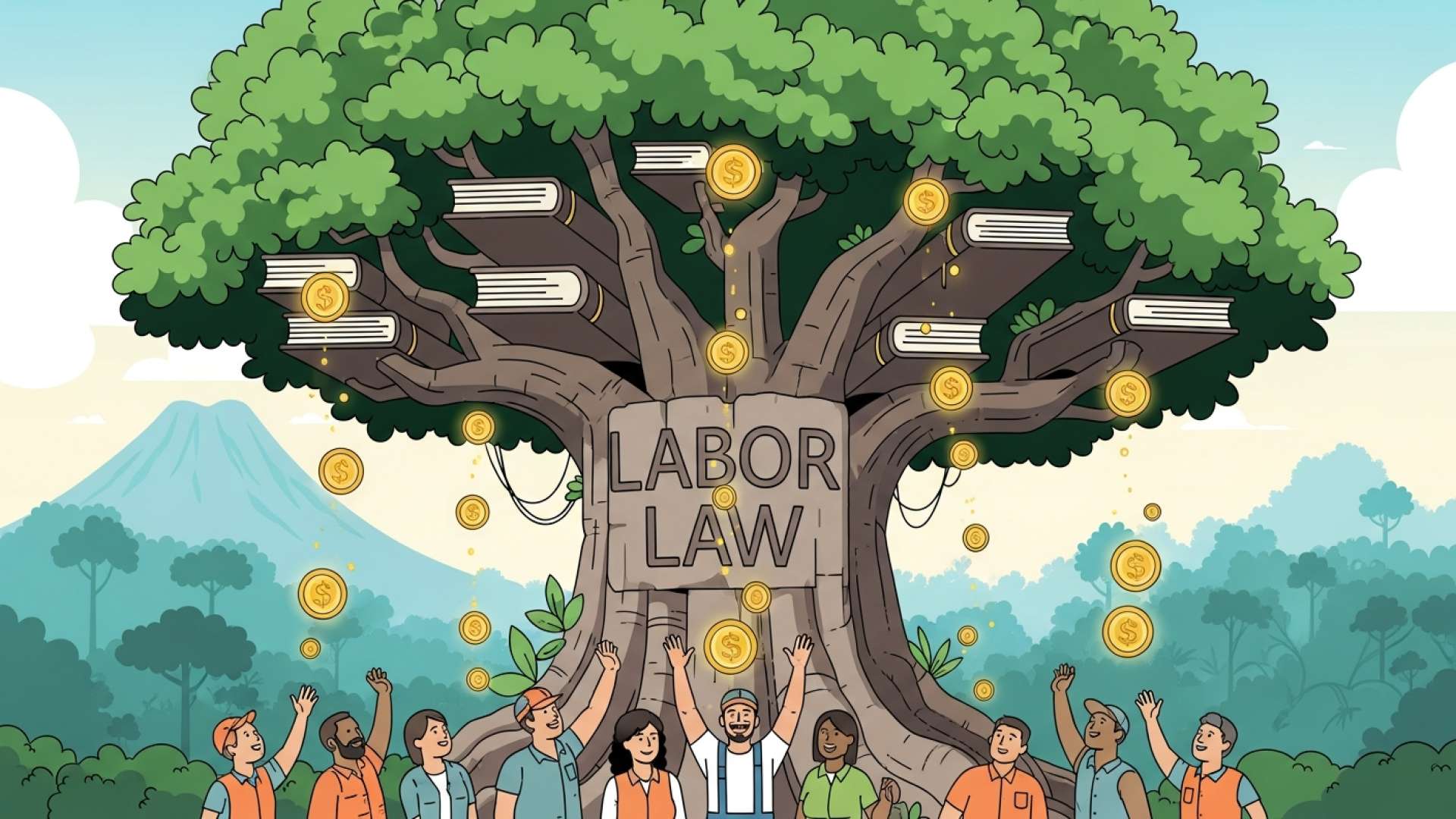San José, Costa Rica — SAN JOSÉ – Public sector employees across Costa Rica can mark their calendars, as the Ministry of Labor and Social Security (MTSS) has officially confirmed that the annual year-end bonus, known as the aguinaldo, is scheduled for payment on Friday, December 5, 2025. This highly anticipated “additional salary” provides a significant financial injection for thousands of households ahead of the holiday season and represents a critical component of the national economy.
The announcement, published on the ministry’s official website, serves as a key benchmark for the labor market. While the December 5th date applies specifically to government workers, the underlying labor code mandates that all employers in the country, regardless of their sector, must pay the aguinaldo within the first 20 days of December. This legally binding deadline ensures that the vast majority of the workforce receives this benefit in a timely manner.
To better understand the legal framework and common issues surrounding the aguinaldo payment, we spoke with Lic. Larry Hans Arroyo Vargas, an expert attorney from the firm Bufete de Costa Rica, who provided his professional analysis.
The aguinaldo is more than just a Christmas bonus; it is an inalienable right for every salaried worker, regardless of the length of their employment during the year. The calculation is based on the average of all salaries received between December 1st of the previous year and November 30th of the current year. It is crucial for employers to remember that the payment deadline is December 20th, and failure to comply can result in significant legal penalties. Furthermore, this benefit is exempt from social security deductions, meaning the employee receives the full calculated amount.
Lic. Larry Hans Arroyo Vargas, Attorney at Law, Bufete de Costa Rica
Indeed, the expert’s emphasis on the aguinaldo as an inalienable right, rather than a mere bonus, is a crucial distinction that underscores the financial stability this benefit provides for workers and their families. We thank Lic. Larry Hans Arroyo Vargas for his valuable perspective, which clarifies both the legal obligations for employers and the significant economic impact for employees.
The MTSS was unequivocal about the serious nature of this obligation. Any employer who fails to pay, delays payment, or provides an incomplete aguinaldo by the December 20th deadline faces significant legal repercussions. Such actions are not merely an administrative oversight but are classified as a severe breach of the employment contract and an improper retention of salary. Workers who have not received their payment by December 21st are entitled to file a formal complaint with the ministry’s Labor Inspection Department.
In a formal statement outlining the penalties, the ministry detailed the consequences for non-compliant employers, emphasizing the gravity of the offense and its legal standing.
If it is not paid, if it is delayed, or if it is paid incompletely, it will be considered an improper retention of salary and a serious breach by the employer of their contractual obligations. Furthermore, they will be subject to the legal fine, according to the damages caused and the number of workers they employ.
Ministry of Labor and Social Security (MTSS), official statement
The right to receive the aguinaldo is broadly protected under Costa Rican law. It extends to all employees who have worked for at least one continuous month for the same employer. This includes individuals on fixed-term contracts, those hired for specific projects, and part-time workers who are paid on a daily or hourly basis. The universal nature of the law ensures that temporary and occasional workers are not excluded from this fundamental benefit.
Calculating the aguinaldo involves a straightforward but detailed process. It is determined by summing all salary-based payments received between December 1 of the previous year and November 30 of the current year, and then dividing that total by twelve. Critically, this calculation must include not only regular wages but also compensation from overtime hours and any other payments legally defined as salary. Furthermore, salary paid in kind, such as housing or food, must be factored in, valued either at a mutually agreed-upon rate or at up to 50% of the cash salary if no prior agreement exists.
The law also specifies how to handle periods of absence. For instance, if an employment contract was suspended due to unpaid leave, that period is not included in the calculation. Similarly, time spent on disability or sick leave is excluded, as the worker receives a subsidy from social security rather than a salary from the employer during this time. These periods do not contribute to the total earnings used to calculate the bonus.
However, a crucial exception applies to maternity leave. In this case, the law explicitly states that sums received by a female employee during her pre- and post-partum leave are considered salary for all legal purposes. Consequently, this period is fully included when calculating the aguinaldo, as well as for other key labor rights such as severance, notice period pay, and vacation time. This provision ensures that working mothers are not financially penalized for exercising their right to maternity leave.
As the December 5th payout date approaches for the public sector and the December 20th deadline looms for all other businesses, both employers and employees are reminded to ensure compliance and understanding of their respective rights and obligations. The timely distribution of the aguinaldo is not just a holiday tradition but a cornerstone of Costa Rica’s labor law and a vital stimulus for end-of-year economic activity.
For further information, visit mtss.go.cr
About Ministry of Labor and Social Security (MTSS):
The Ministry of Labor and Social Security is the Costa Rican government entity responsible for formulating and executing national policies on labor, employment, and social security. It works to promote decent work, mediate labor disputes, enforce labor legislation through its inspection division, and ensure the protection of workers’ rights across all sectors of the economy. The MTSS plays a central role in maintaining a stable and fair labor environment in the country.
For further information, visit bufetedecostarica.com
About Bufete de Costa Rica:
As a leading institution in Costa Rica’s legal landscape, Bufete de Costa Rica is defined by a bedrock of integrity and a relentless pursuit of professional distinction. The firm blends a rich history of client service with a forward-thinking approach, championing innovative solutions within the practice of law. Beyond the courtroom, its foundational mission is to strengthen society by demystifying legal complexities, ensuring that knowledge serves as a tool for public empowerment and civic strength.









